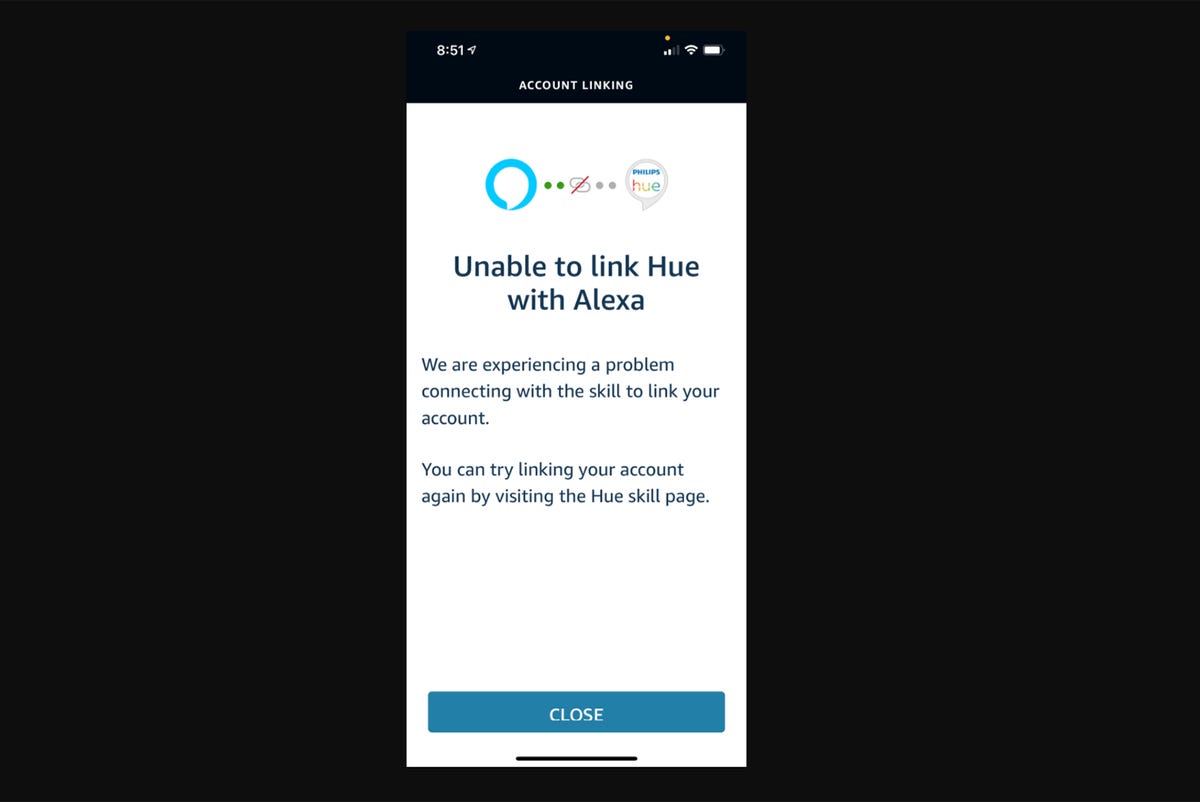When Jason Cipriani and I interviewed Tobin Richardson, president of the Zigbee Alliance, last week about the Alliance's involvement in NASA JPL's Mars 2020 mission[1], I didn't think I would be applying its technology to my own personal use anytime soon. I had just finished converting my home to Lutron's Caseta lighting system, [2]which (currently) uses a different wireless standard. I also have a handful of Philips Hue[3] bulbs that I use in various lamps around my home.
Last night, at around 11 pm, my wife told me that Alexa was no longer able to switch off any Hue lights. There happen to be a pair in use in my main bedroom as bedside lamps. Sure enough, after investigating the issue, it turned out that Philips Hue's cloud service and Alexa skill got disconnected from my system.
After attempting to reset the skill and reconnect it to my Alexa, I saw this message:

This is, of course, extremely frustrating when you've integrated all your lighting into a smart home system. Not being able to turn off your lights unless being done manually entirely defeats the purpose of that.
So, this morning, I dug into this a bit more. I opened up the Hue app on my iPhone, which I haven't used in a very long time, only to set the bulbs up. Under the Hue app's software version, I noticed that the Hub reported a Zigbee version number.
It suddenly dawned on me that if Hue hub is communicating via Zigbee, then, in theory, I should be able to natively connect the Hue bulbs to my Echo Gen 4 [4]smart speakers -- which, it turns out, you now can do[5]

